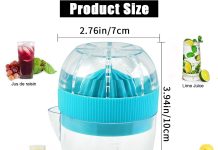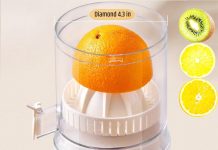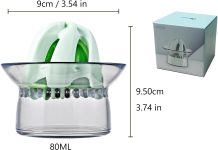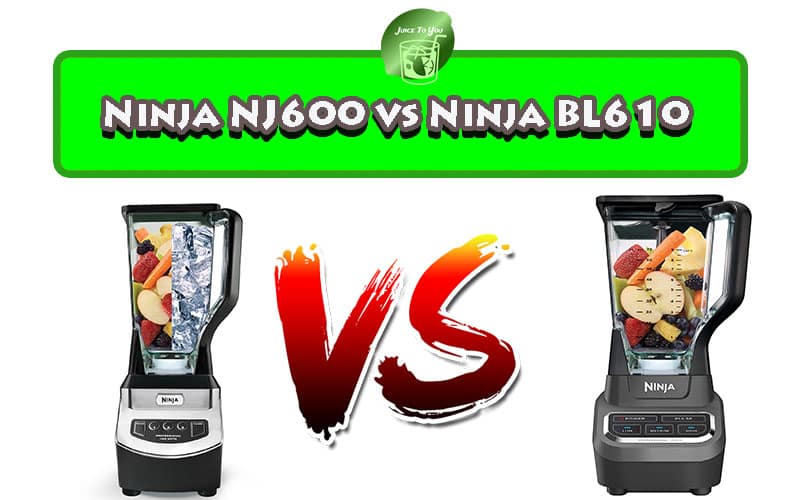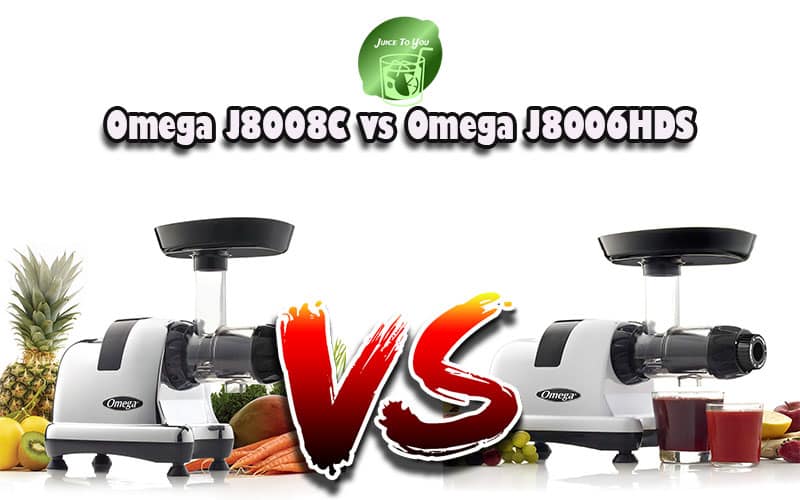Let’s settle the age-old debate: is juice really better for you than water? We’ve all grown up hearing about the benefits of staying hydrated with plain old H2O, but lately, juice seems to be stealing the spotlight. In this article, we take a closer look at the nutritional value of both beverages, exploring whether the added sugars in juice outweigh its potential advantages. Get ready to quench your thirst for knowledge as we explore the truth behind this juicy dilemma.
Review contents
Benefits of Water
Hydration
Water is essential for our overall health and wellbeing, and one of its primary benefits is hydration. Staying hydrated is vital to maintain the proper functioning of our body’s cells, organs, and systems. Drinking an adequate amount of water every day helps to replenish the water our bodies lose through perspiration, breathing, and other bodily functions. Hydration is especially crucial during physical activity or in hot weather when we need to replace the fluids we have lost to prevent dehydration.
Detoxification
Water plays a crucial role in detoxifying our bodies. It helps to flush out toxins and waste materials through urine and sweat, promoting the efficient functioning of our kidneys and liver. By regularly consuming water, we support our body’s natural detoxification processes, allowing it to eliminate harmful substances and maintain a healthy internal balance.
Digestion
Proper digestion is essential for our overall gastrointestinal health, and water contributes significantly to this process. By drinking water before, during, and after meals, we help our bodies break down food more effectively and absorb nutrients efficiently. Water also supports the movement of food through the digestive tract, preventing constipation and promoting regular bowel movements.
Weight Loss
Water can be a valuable ally in our weight loss journey. Including water as part of a calorie-controlled diet can help suppress appetite and promote a feeling of fullness, reducing excessive calorie intake. Additionally, choosing water instead of high-calorie beverages like sugary sodas or juices can significantly decrease overall calorie consumption. Drinking water before meals can also be a helpful strategy to reduce portion sizes and maintain healthy eating habits.
Benefits of Juice
Nutritional Value
Juice can offer a range of nutritional benefits, particularly when made from fresh fruits and vegetables. It can be a convenient and tasty way to consume essential vitamins, minerals, and other nutrients that our bodies need to stay healthy. Juices can provide a concentrated source of these nutrients, making it easier to meet our daily requirements and ensure we are getting a variety of important vitamins and minerals.
Vitamins and Minerals
Fruit and vegetable juices are rich in various vitamins and minerals, depending on the ingredients used. For example, orange juice is an excellent source of vitamin C, while carrot juice is packed with vitamin A. These nutrients are essential for supporting our immune system, maintaining healthy skin and eyes, and promoting overall wellbeing. By incorporating different types of juices into our diet, we can benefit from a diverse range of vitamins and minerals.
Antioxidants
Juices, especially those made from berries or dark leafy greens, can be a great source of antioxidants. Antioxidants are substances that help protect our cells from damage caused by free radicals, which can contribute to aging and various chronic diseases. By consuming juices rich in antioxidants, we can enhance our body’s defense against oxidative stress and promote optimal health and longevity.
Energy Boost
Juices can provide a natural energy boost, making them an excellent alternative to caffeinated beverages or sugary energy drinks. The natural sugars present in fruits and vegetables can provide a quick source of energy, helping to combat fatigue and enhance mental and physical performance. Additionally, the vitamins and minerals present in juices can support our body’s energy production processes, ensuring we stay alert and active throughout the day.
Sugar Levels
Natural Sugars in Juice
Juices naturally contain sugars that are derived from the fruits or vegetables used. These natural sugars, while providing a sweet taste, also come with the accompanying fiber and nutrients present in the whole fruits or vegetables. Consuming juices with natural sugars can provide a healthier alternative to processed or added sugars found in many other beverages.
Added Sugars in Juice
Some store-bought juices may have added sugars to enhance flavor. While these added sugars may make the juice taste sweeter, they can contribute to excessive calorie intake and potential health risks, especially if consumed in large quantities regularly. It is essential to check the labels and choose juices with minimal or no added sugars to maximize the health benefits of juice consumption.
Impact on Blood Sugar Levels
Both natural and added sugars in juice can have an impact on blood sugar levels, albeit to different extents. Juices containing natural sugars may cause a more moderate increase in blood sugar levels compared to beverages with added sugars or processed fruit juices. It is recommended for individuals with diabetes or those managing blood sugar levels to monitor their intake of juice and consider factors like portion sizes and overall dietary balance.
Calorie Content
Calories in Water
Water is calorie-free, meaning it contains no calories and does not contribute to our overall calorie intake. This makes it an excellent choice for those looking to manage their weight or reduce calorie consumption in their diet. Opting for water instead of sugary beverages can significantly lower overall calorie intake and support weight management goals.
Calories in Juice
The calorie content of juices varies depending on the ingredients used and the preparation method. While natural juices contain calories derived from the sugars present in fruits or vegetables, processed or commercially made juices may have higher calorie content due to added sugars or other additives. It is important to consider the calorie content of juices when incorporating them into our diet, especially if weight management is a concern.
Weight Management
When it comes to weight management, water can be a valuable ally due to its calorie-free nature. Drinking an adequate amount of water can help us feel fuller, reduce hunger pangs, and support portion control. On the other hand, while juices can offer nutritional benefits, it is essential to consider their calorie content and consume them in moderation, considering their potential impact on overall calorie intake and weight management goals.
Hydration
Water’s Role in Hydration
Water is the ultimate hydrator, primarily because it is readily absorbed by our bodies. It efficiently replenishes and hydrates our cells, facilitating optimal bodily functions and keeping us feeling refreshed and energized. For everyday hydration needs, water is undoubtedly the best choice.
Juice as a Hydration Alternative
While water should be our primary hydration source, juices can serve as an occasional hydration alternative. Juices contain a substantial amount of water, making them contribute to our overall fluid intake. However, it is important to remember that juices may also contain higher calorie content and natural sugars, so moderation is key.
Electrolyte Balance
Maintaining a proper electrolyte balance is crucial for our body’s overall functioning. Electrolytes are minerals that help regulate fluid balance, nerve function, and muscle contraction. Water is essential for maintaining electrolyte balance, and staying hydrated is the primary way to ensure electrolyte levels remain optimal. While juices may contain some electrolytes, especially if made from certain fruits or vegetables, it is important to note that water is still the best choice to maintain proper electrolyte balance.
Digestive Health
Fiber in Water
Water, being a pure liquid, does not contain any significant amount of fiber. However, it indirectly supports digestive health by keeping the digestive tract adequately hydrated, preventing constipation, and promoting regular bowel movements. Adequate water intake helps soften stool and assists in its smooth passage through the intestine.
Fiber in Juice
Juices made from whole fruits or vegetables, especially those with pulp, can contain varying amounts of dietary fiber. Fiber is essential for a healthy digestive system as it adds bulk to stools, aids in regular bowel movements, and supports the growth of beneficial gut bacteria. However, it is important to note that juicing may remove some of the fiber present in whole fruits or vegetables, especially if the pulp is discarded.
Aiding Digestion
Both water and juice can contribute to the overall digestive process. Water helps in the breakdown and absorption of nutrients, promotes the secretion of digestive enzymes, and facilitates the movement of food through the digestive tract. Similarly, juices, when made from whole fruits or vegetables, can provide nutrients and enzymes that aid digestion and promote optimal digestive health. However, it is important to maintain a balanced diet and not solely rely on juice for meeting all our dietary needs.
Vitamins and Minerals
Essential Nutrients in Water
Water, being pure H2O, does not contain significant amounts of vitamins or minerals. However, it plays a vital role in transporting these essential nutrients throughout our body, ensuring their efficient absorption and utilization. Water acts as a medium for various bodily processes, facilitating the distribution of vitamins and minerals to our cells and tissues.
Essential Nutrients in Juice
Juices can contain a diverse range of essential vitamins and minerals, depending on the ingredients used. For example, orange juice is an excellent source of vitamin C, while spinach juice is rich in iron and other minerals. By incorporating different types of juices into our diet, we can enhance our intake of these essential nutrients and support overall health and wellbeing.
Meeting Nutritional Requirements
While juices can contribute to meeting our nutritional requirements, it is essential to remember that they should not replace whole fruits, vegetables, or other whole foods in our diet. Juices can be a beneficial addition to a balanced diet, providing a concentrated source of vitamins and minerals. However, obtaining nutrients from a variety of whole foods ensures we also benefit from essential dietary fiber and other valuable compounds present in whole fruits and vegetables.
Antioxidants
Natural Antioxidants in Water
Water, in its pure form, does not contain natural antioxidants. However, by staying properly hydrated, we support our body’s natural antioxidant defense mechanisms. Hydration allows our cells and tissues to function optimally, promoting the efficient scavenging and removal of harmful free radicals. Drinking enough water is essential for maintaining a healthy internal environment that can combat oxidative stress.
Antioxidants in Juice
Juices, especially those made from antioxidant-rich fruits and vegetables, can provide a concentrated source of these beneficial compounds. Antioxidants help protect our cells from damage caused by free radicals, which can contribute to chronic disease and aging. By consuming antioxidant-rich juices, we can enhance our body’s defense against oxidative stress and support overall health and vitality.
Protecting Against Free Radicals
Free radicals, produced as byproducts of normal bodily processes or external factors such as pollution and UV radiation, can cause cellular damage and contribute to the development of various diseases. Antioxidants, present in fruits and vegetables used to make juices, can neutralize these harmful free radicals, minimizing their damaging effects and promoting cellular health. Regular consumption of antioxidant-rich juices can play a significant role in protecting against oxidative stress and maintaining optimal health.
Weight Management
Low Calorie Content of Water
Water is naturally calorie-free, making it an ideal choice for those looking to manage their weight or reduce calorie intake. Regularly drinking water can help promote a feeling of fullness, reducing the temptation to snack or consume calorie-rich beverages. Incorporating water into a balanced diet and healthy lifestyle can support weight management efforts and aid in achieving and maintaining a healthy weight.
Satiety and Juice
While juices can offer nutritional benefits, it is important to consider their potential impact on satiety and weight management. Juices, particularly when made from fruits, can contain natural sugars that may not provide the same level of satiety as whole fruits. Additionally, juices may have a higher calorie content compared to water. Therefore, when including juices in our diet, it is crucial to consider portion sizes, overall calorie intake, and incorporate them as part of a balanced meal plan.
Managing Caloric Intake
Calories play a significant role in weight management, and being mindful of our overall caloric intake is essential. Water can be an excellent tool for managing caloric intake as it contains no calories, allowing us to quench our thirst without adding to our daily calorie count. While juices can provide additional nutritional benefits, it is important to consider their calorie content and choose options with minimal or no added sugars to support weight management goals effectively.
Overall Assessment
Situational Factors
When considering whether juice or water is better for us, it is important to take into account various situational factors. Both juice and water have their own set of benefits based on individual needs and circumstances. In situations where hydration is the primary concern, water is the best choice due to its ability to efficiently hydrate our bodies without added calories or sugars. However, when we want to incorporate additional nutrients or enjoy a flavorful alternative, juices made from fresh fruits or vegetables can be a valuable addition.
Personal Preference
Personal preference also plays a significant role in choosing between juice and water. While water is a neutral and universally available option, some individuals may find it bland or unappealing. Juices can offer a wide range of flavors, appealing to different tastes and preferences. By considering our personal preferences, we can choose beverages that are enjoyable and still provide the necessary hydration and nutritional benefits.
Healthy Hydration Habits
Ultimately, maintaining healthy hydration habits is essential, regardless of whether we prefer water or juice. Adequate hydration is crucial for our overall health, and it is recommended to prioritize water as the primary source of hydration. Water provides numerous benefits like hydration, detoxification, digestion support, and weight management without adding excess calories or sugars. Adding juices made from fresh fruits or vegetables can be a healthy occasional alternative to enhance our nutrient intake, as long as we consider portion sizes, added sugars, and overall dietary balance.
In conclusion, both water and juice have their own unique benefits and roles in our overall health and wellbeing. Water is the ultimate hydrator and provides essential hydration, detoxification support, digestion aid, and weight management benefits. On the other hand, juice can be a valuable source of vitamins, minerals, antioxidants, and a natural energy boost. When choosing between juice and water, it is crucial to consider our individual needs, situational factors, personal preferences, and maintain a balanced approach to hydration and nutrition. By incorporating both water and juices mindfully, we can ensure we stay hydrated, nourished, and on track towards optimal health.






